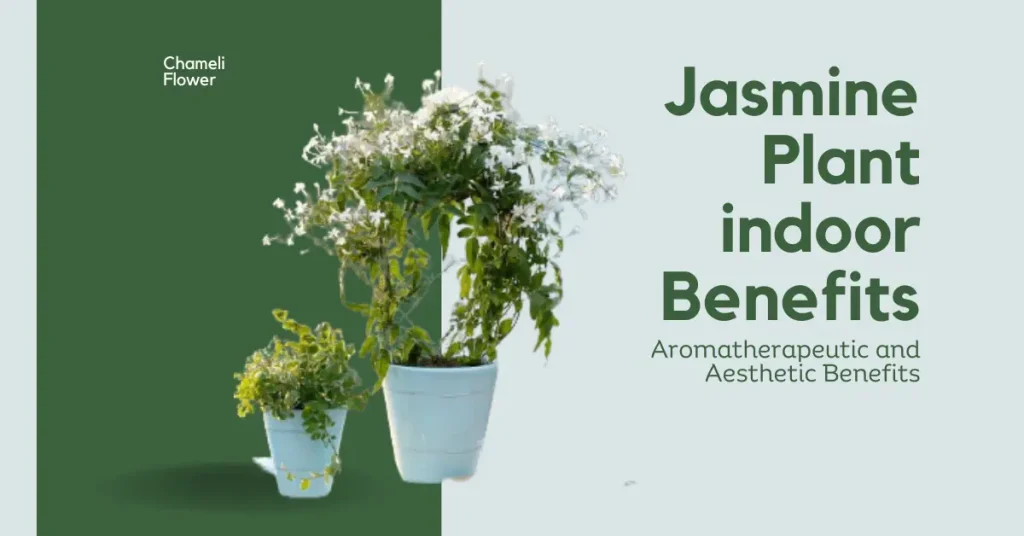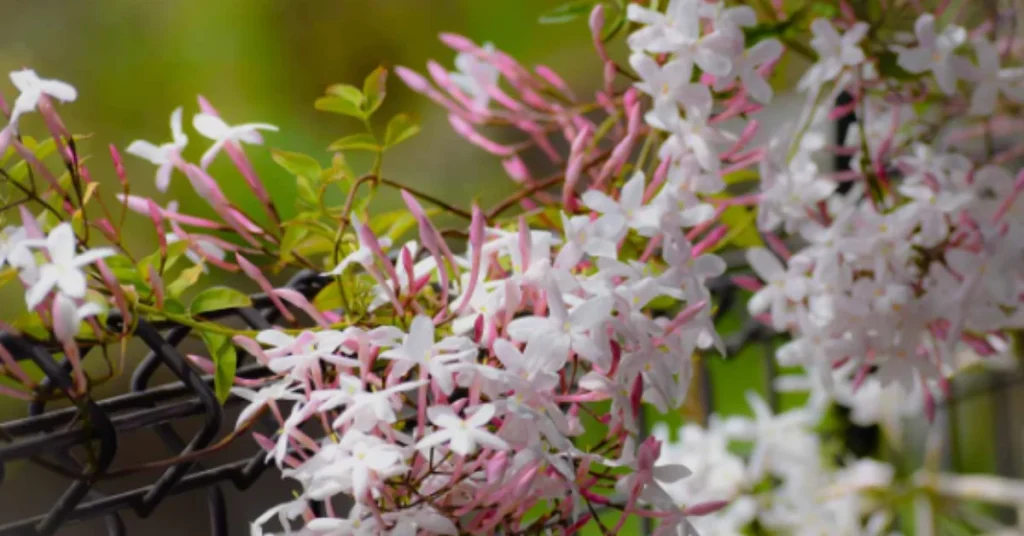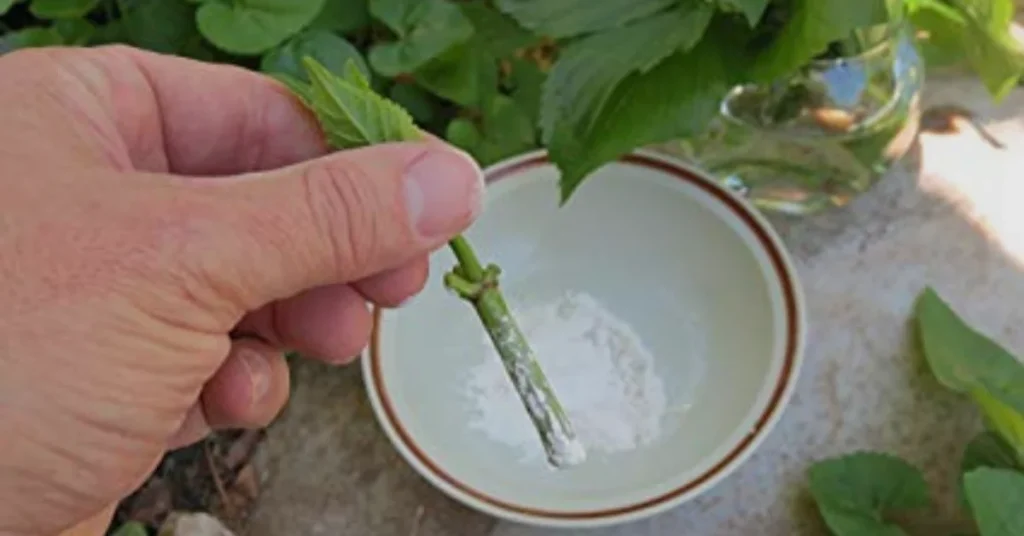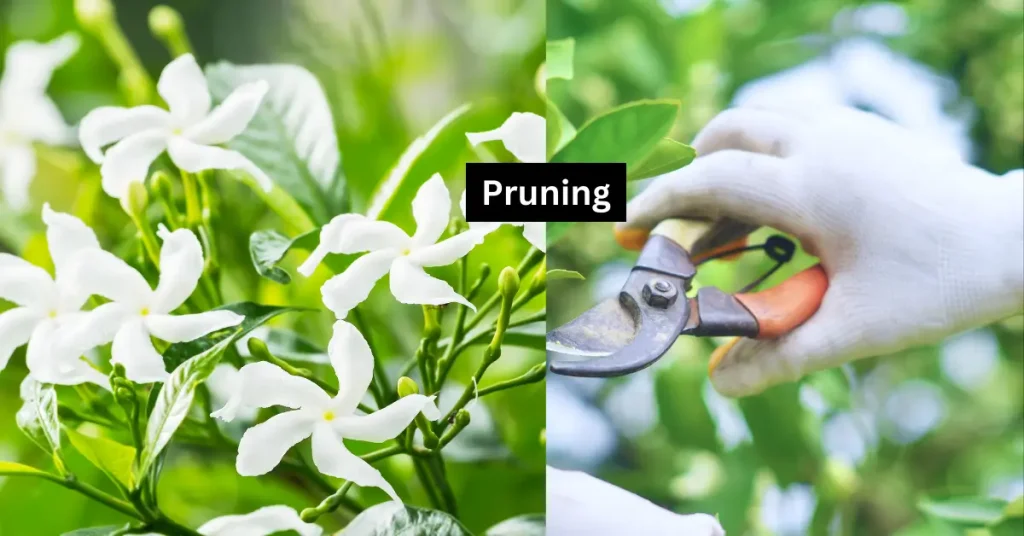Composting For Beginners: An Easy Guide 2025
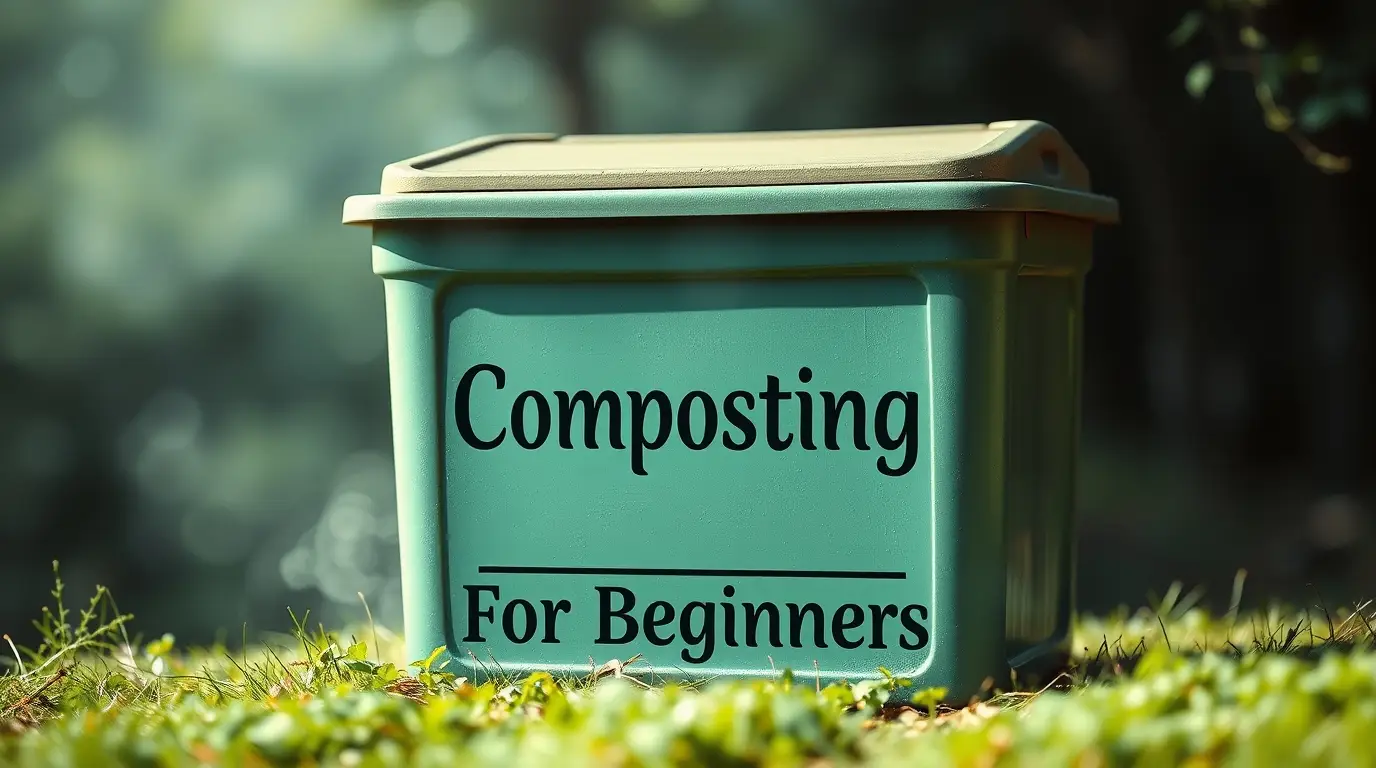
People start gardening paying less attention to soil health and a healthy soil is the primary source of essential nutrients for plants. Thousands of Kgs of kitchen scraps are wasted without realizing their potential. When I started using leftover scraps, that all changed my space and plants. Not only did my plants thrive, but I also felt great knowing I was reducing waste. If you’re new to composting and think it’s complicated, let me assure you, it’s easier than you think. Continue reading composting for beginners.
What To Compost and What To Not
It is necessary to know about the things, compostable and non-compostable.
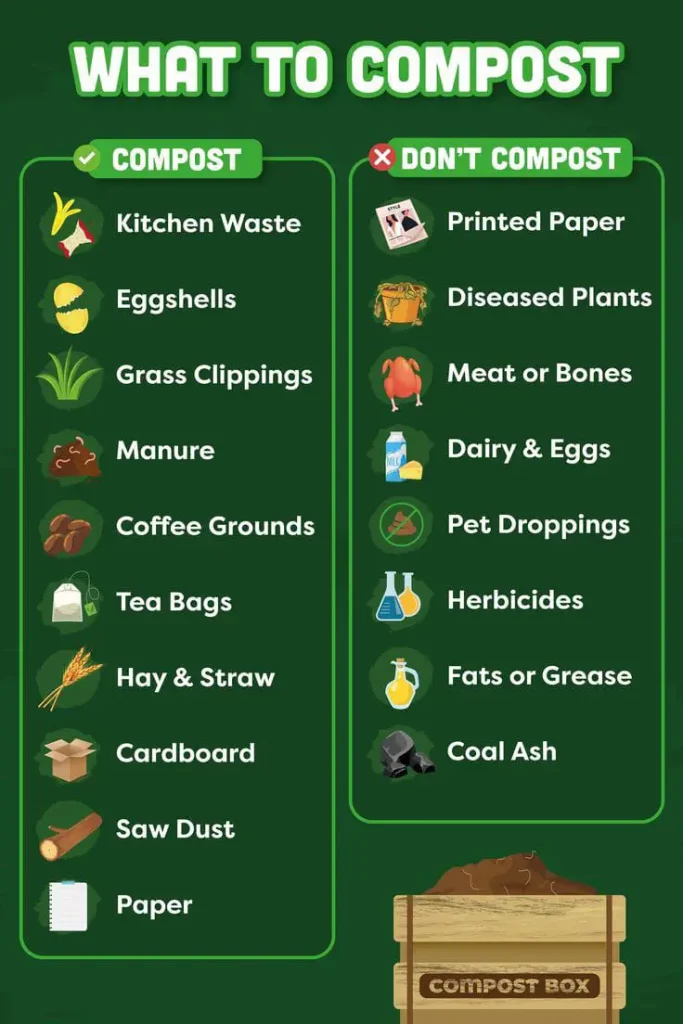
Methods Of Composting
There are several methods of composting and the right method depends on your space and preference.
- Pile Composting
- Pit or Trench Composting
- Black Soldier Fly Composting
- Vermicompost
- Bokashi Bin Composting
- Compost Tumbler
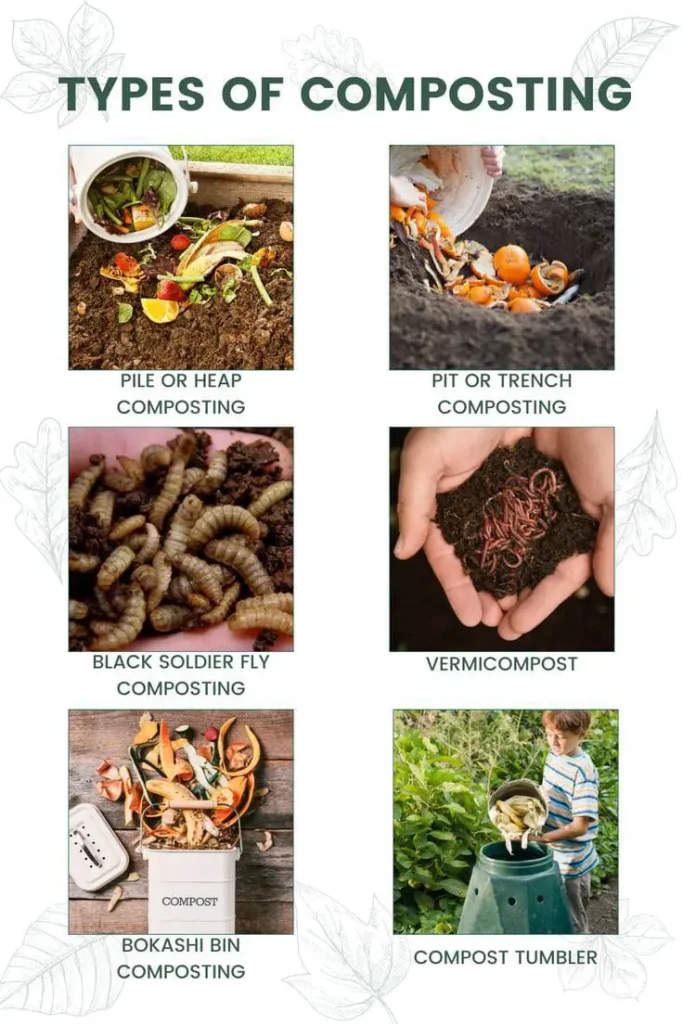
Pile Composting (Traditional Hot or Cold Composting)
This is the most natural and simple way of composting. You make a big pile of organic waste, kitchen scraps, yard clippings, leaves and other biodegradable materials and let nature do its work. When contents of compost are kept at higher temperatures, this reduces the timeline and this method is known as hot composting. In Cold composting, organic waste pile is set to breakdown naturally.
⏳ Time: Hot composting takes 2-6 months, while cold composting take 6 months to a year .
⚒️ Difficulty Level: Easy to Moderate and requires patience.
Pit or Trench Composting
This method is as simple as digging a hole or trench in your garden, dumping in kitchen scraps and covering it with soil. Over time, microbes and worms break everything down underground. It’s a great way to improve soil fertility right where you plan to grow plants.
⏳ Time: 2 months to a year, depending on the soil type and the materials being composted.
⚒️ Difficulty Level: Easy and Cheap.
Black Soldier Fly Composting
Insects are taken enemies of gardens but there are some beneficial insects. Have you ever heard about the insects for composting? Black soldier fly larvae are composting champions. They eat food scraps, manure and even dairy, meat and citrus The larvae grow fast, reduce waste quickly and can even be used as animal feed.
⏳ Time: A few weeks, 21 days to 45 days (super fast).
⚒️ Difficulty Level: Moderate (you need to manage the larvae and provide the right environment).
Vermicomposting (Worm Composting)
This method uses special composting worms like red wigglers to eat kitchen scraps and turn them into nutrient-rich worm castings. You need a worm bin with proper airflow, bedding (like shredded paper or coconut coir), and the right moisture level. It’s a great indoor or outdoor option.
⏳ Time: 2-4 months for finished compost.
⚒️ Difficulty Level: Moderate (worms need proper care).
Bokashi Bin Composting
Bokashi composting is a fermentation process using beneficial microbes (Bokashi bran) to break down food scraps, including meat and dairy, in an airtight bin. The result you get is a pre compost, which you bury in the soil to complete decomposition. This is actually a drawback of this method.
⏳ Time: 2-4 weeks in the bin, then another 2-4 weeks in soil.
⚒️ Difficulty Level: Moderate.
Compost Tumbler
A compost tumbler is a rotating bin that makes composting quicker and easier. Add greens like kitchen scraps and browns like dry leaves, turn the bin every few days and let microbes do their job. The enclosed design keeps pests out and speeds up decomposition.
⏳ Time: 2-3 months, depending on conditions.
⚒️ Difficulty Level: Easy.
The Best Method of Composting For Beginners
For a beginner gardener, the best composting method depends on your space, effort level, and patience. If you want a set-and-forget method, go with trench composting. Its easy and cheap method. If you want faster results, a compost tumbler is the way to go.
Pick the Perfect Spot
Remember, your composting location is crucial for success. Choose a shady, well-drained area that’s easily accessible. It should be convenient enough for regular use but not too close to your living space (to avoid any odors or other issues).
Composting Materials
Compost requires a balance of greens (nitrogen-rich materials) and browns (carbon-rich materials):
- Greens: Fruit and vegetable scraps, coffee grounds, grass clippings.
- Browns: Dry leaves, shredded paper, cardboard, wood chips.
- Avoid: Dairy, meat, oily foods, and pet waste.
Easy ratio to follow is 1 to 1, 50% green compost and 50% brown compost.
Tip: Keep a small bin in the kitchen for daily scraps and empty it into the main compost pile every few days.
Set Up Your Compost Bin
Now that you have the right materials, it’s time to layer them correctly:
- Start with sticks
- Add Browns
- Add a green layer (kitchen scraps or fresh grass clippings).
- Soil and Water (Add water to keep the pile moist but not too wet.)
- Continue layering and stop according the method you are following and then let the method work.
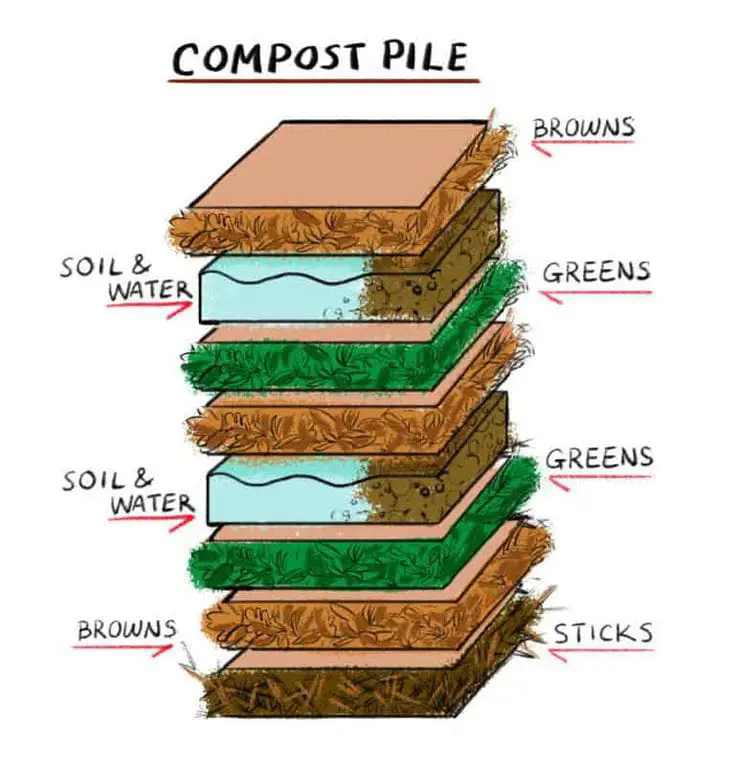
Maintain & Troubleshoot
Turning your compost once a week speeds up decomposition and prevents odors. Here’s how to address common problems:
- Foul smell? Add more browns and aerate.
- Too dry? Lightly water and mix.
- Pests? Avoid meat and cover fresh scraps with dry leaves or soil.
Your compost will start showing signs of breakdown:
- Warmth in the center (a sign of active decomposition).
- A pleasant earthy smell.
- Shrinking volume.
If things seem slow, mix it more often and check the moisture balance.
Once your compost is dark, crumbly and smells like fresh soil, it’s ready. You can use it for:
- Garden beds to enrich soil.
- Potted plants for nutrient boosts.
- Compost tea.
The Benefits of Composting
- Healthier Soil: Compost enriches the soil with nutrients, improves aeration, and increases moisture retention.
- Waste Reduction: You’ll significantly cut down on kitchen and yard waste, reducing landfill contributions.
- Cost Savings: Compost acts as a free, organic fertilizer.
- Eco-Friendly Gardening: By composting, you contribute to sustainability and reduce carbon footprints.
- Stronger Plants: Compost naturally fights plant diseases and enhances growth.
Conclusion
Starting composting may seem uneasy at first, but once you establish a habit, it becomes second nature. My garden has flourished since I began composting and I love knowing that I’m giving back to the earth. I hope, I made it easy and expect, you will Give it a try.
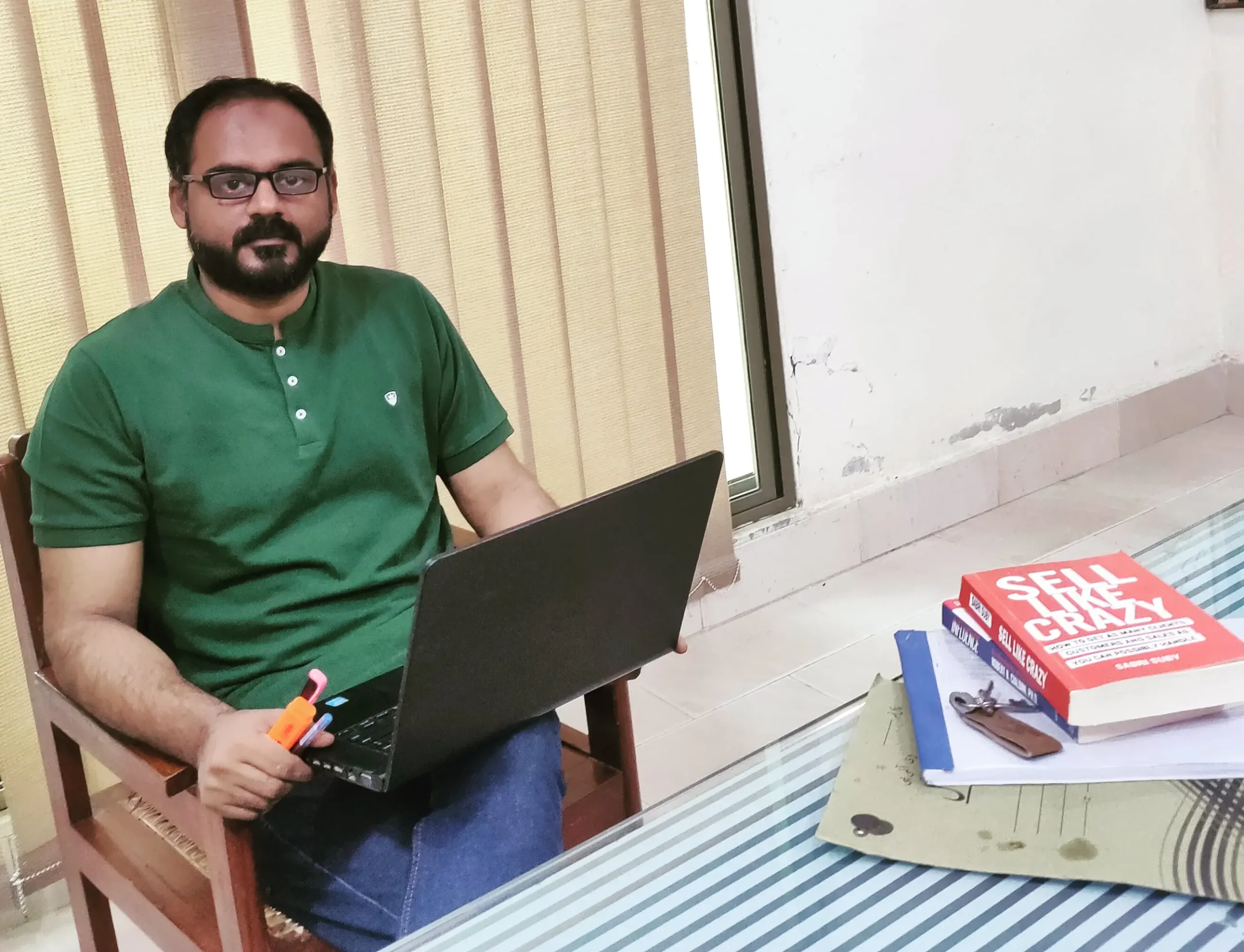
I am Yasir Riaz, an Agronomist for more than a decade. Helping local farmers and Gardeners to improve their crops and Gardens and overall productivity. In addition to my work in agriculture, I have also delved into the digital world as an SEO writer and blogger. Through my blog, I aim to educate and inspire others about the Chameli Flower (Jasmine).

